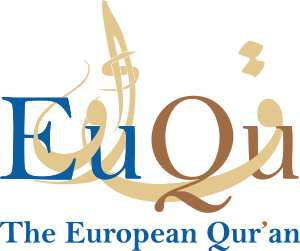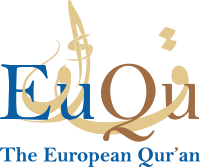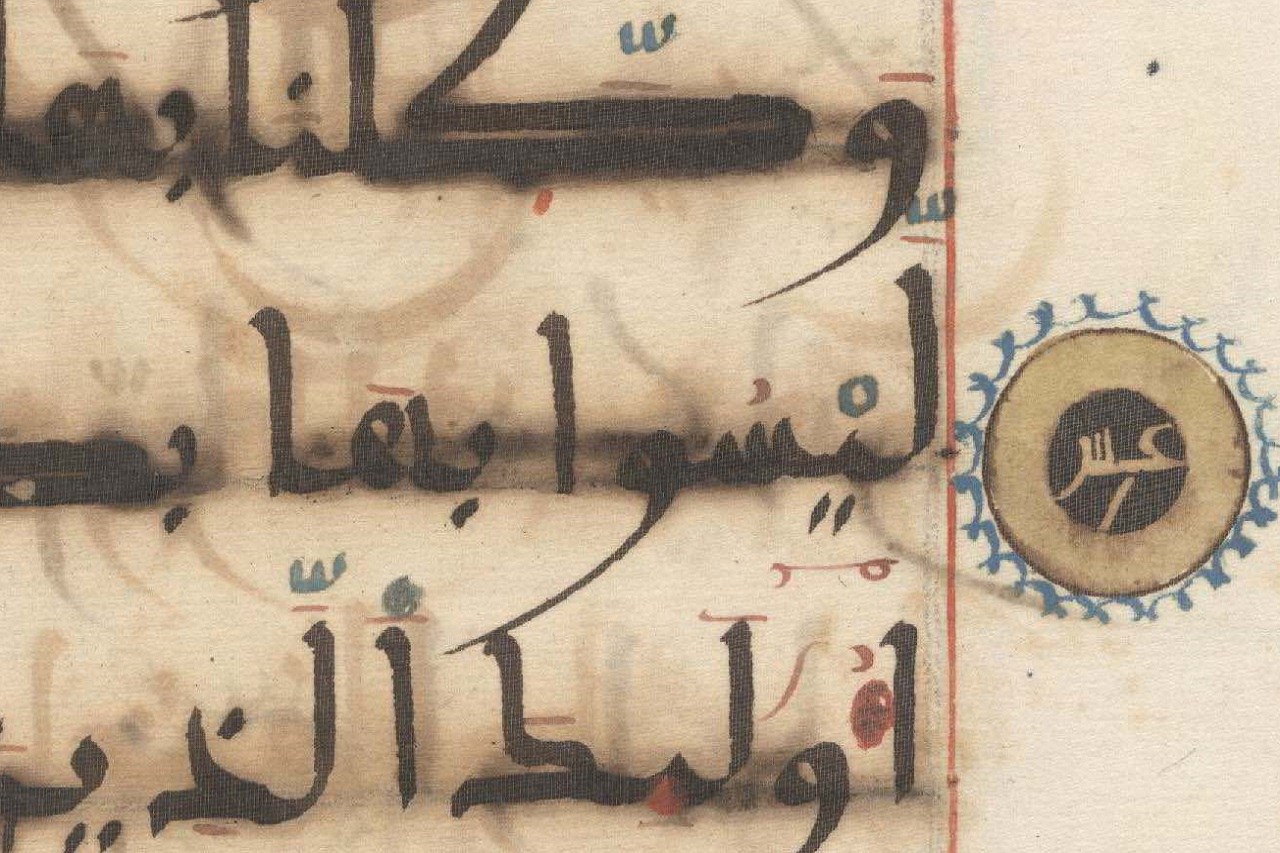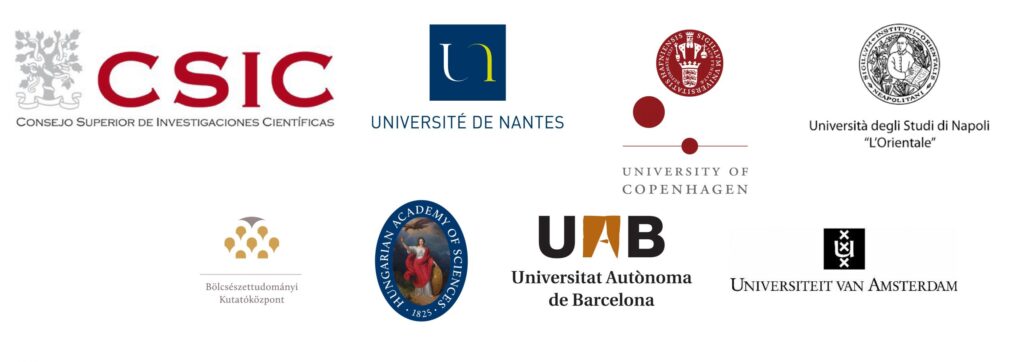
EuQu is supporting a number of post-doctoral projects across its synergy network:
CSIC, Madrid
Dominicus Germanus de Silesia’s (1650-1669) Latin Translation of the Qur’an and Other works – Dr Ulisse Cecini
Ulisse Cecini’s project deals with the study of the Latin translation of the Qur’an realised by the Franciscan Dominicus Germanus de Silesia in the years 1650-1669 and particularly to provide the first critical account of the hitherto unedited commentary (Arabic and Latin), which he added to the translation. The most remarkable feature of the translation is that it explicitly puts an accent on Islamic exegesis, by intercalating the translation with scholia, which report Muslim’s interpretations of the passage they follow. Among the most frequently quoted commentators we find ‘Abd al-Razzāq al-Kāshānī (ca. 660-736/1261-1335), the Sufi scholar inspired by Ibn ʿArabī (d. 638/1240), with his mystical Qur’anic commentary Taʾwilāt al-Qurʾān (Esoteric interpretations of the Qur’an). Preceding his Qur’anic translation Germanus also quotes, in Arabic, the al-Ajwiba al-fākhira ʿan al-asʾila al-fājira (The Splendid Replies to Insolent questions) by the North African Berber Maliki jurist Shihāb al-Dīn al-Qarāfī (626-684/1228-1285), which was defined by Brockelmann as “the greatest apologetic achievement in Islam”.
Along with analysis and study of the text, the project will conduct research on Germanus de Silesia himself and on his relation to Muslim exegesis, both oriental and Iberian, analyzing the dialectic between these two poles. Moreover, it will look into Germanus’ contribution to European Arabic and Qur’anic scholarship through an investigation of his complete oeuvre, which, apart from the Qur’an translation, has not been taken into account by modern researchers: this includes linguistic works, such as Fabrica linguae Arabicae and Introductorium practicum in linguas Arabicam, Persicam, Turcicam; handbook-like literature for missionaries, such as the Veni-mecum ad Mohammedanos ex Alcorano contra Alcoranum pro defensione evangelicae veritatis; and further works, which so far are known only by their titles, but are certainly of interest for the European Qur’an-project, such as Selectiores sententiae ex Arabum libris collectae, Prognosis interpretationis litteralis Alcorani and Impugnatio Alcorani, to mention only a few.
University of Naples L’Orientale
Contending Salvation Histories. The Rise of a Christian Exegesis of the Qur’an – Dr Davide Scotto
This project will trace the origins and early developments of the history of the Christian exegesis of the Qur’ān from the twelfth to sixteenth centuries, focusing on its soteriological implications. Drawing on a variety of literary sources in Latin and the Romance languages, the research will tackle the conflicts, overlappings, and confluences between distinct soteriological narratives, one of a Biblical and a typological character, the other of a Qur’anic nature. It will show how the translation and dissemination of the Qur’ān in Latin Christendom urged to a careful reconsideration of Christian salvation history and hence to question a monolithic view of Europe’s religious history and identity.
The Catholic Attitude towards the Qur’an and Islamic Doctrines in the 17th and 18th Centuries – Dr Federico Stella
Starting from Baldassarre Loyola Mandes’ translations and commentaries of the Qur’ān, Dr Stella’s project focuses on the Catholic attitude – especially of the Society of Jesus – toward the Qur’an and the Islamic doctrines between the seventeenth and the eighteenth centuries. Since several Jesuits documents concerning Islam are still unknown, unpublished or less studied, the work will initially outline an inventory of Jesuit sources on Islam held in several Catholic and Vatican archives. A critical study of there sources will then be undertaken to identify the kind of document, the literary genre, and the target audience of each work. Finally, all the quotes taken from the Qur’an, as well as all the references to Islamic doctrines, will be identified in order to understand how Baldassarre, Jesuits and Catholics dealt with the Qur’ān and Islam.
The University of Kent
The Qur-an in Germany, c. 1600-1750 – Dr Asaph Ben-Tov
Readers of the Qur’an in Early Modern Europe came from diverse quarters and had various reasons for studying the “Turkish Bible”. A particularly rich and understudied field is offered by the German speaking territories in the seventeenth and eighteenth centuries. While the first German Qur’an translation made directly from the Arabic original did not appear until 1773, this period witnessed a series of German translations derived from other European translations as well as several Latin annotated translations of portions of the Qur’an. In addition, the Qur’an was the subject of numerous scholarly works, mostly theological in nature – an important early example is offered by Theodoricus Hackspan’s Fides et leges Mohaemmedis (1646). A further instructive and understudied aspect of Early Modern approaches to the Qur’an are its uses, especially in the service of confessionalized biblical scholarship to which can be added Qur’anic knowledge used in confessional (Catholic-Protestant) polemics.
While the study of the Qur’an was hardly ubiquitous in Early Modern Germany it was more broadly spread than is often assumed. It was practiced by academic orientalists, learned pastors and occasionally by Latin school teachers, almost none of whom ever had any direct contact with the Muslim world. While most of these are of secondary significance to a linear history of Arabic philology, tracing significant contributions to the development of European studies of the Qur’an and the Muslim world, they shed light on the intellectual, cultural and social contexts which made these interests meaningful and possible. Most of the orientalists in this study were, to varying degrees, respectable yet relatively marginal figures in a pan European and cross confessional Republic of Letters. An intensive study of their endeavours is also a study of the Republic of Letters from below.
University of Nantes
Jean Germain’s (1398-1461) Debat du Crestien et du Sarrazin – Dr Irene Reginato
Irene Reginato’s activity within the EuQu project concerns the study and the edition of the Debat du Crestien et du Sarrazin by Jean Germain (1398-1461), bishop of Nevers and personal counsellor of the Duke of Burgundy Philip the Good (1396-1467). A still inedited work, the Debat is extant in seven manuscript copies and is a text of both philological and cultural interest. Staging a fictional debate between a Christian and a Muslim, it embodies both Philip’s attempt to increase Burgundy’s prestige through the organisation a new Crusade, and Germain’s commitment in the fight against religious heresy outside and inside Christianity.
